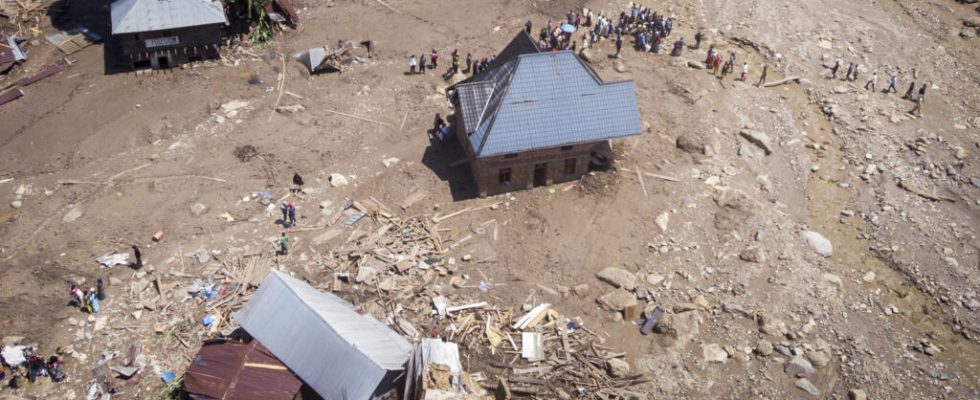The World Food Program describes a “ humanitarian disaster » in the east of the Democratic Republic of Congo, heavily affected by flooding. According to the UN organization, nearly 500,000 people are currently living in flooded areas, notably due to the rising waters of Lake Tanganyika. The province of the same name, Haut-Lomami, South Kivu, Haut-Katanga and Maniema are affected.
1 min
Thousands of Congolese living in flooded areas need food, shelter, drinking water, health care and sanitation. However, in an admission of helplessness, the UN agency of the World Food Program (WFP) admits that it only has “ very limited resources to respond to the crisis “.
There civil society criticizes government inaction and worries about serious shortages. So strategic supply routes like nationals 5 and 30 are under water. André Byadunia, honorary coordinator of civil society in South Kivu, explains:
The situation is not rosy: the waters have exceeded 500 meters from the banks, people are spending the night under the trees because, until then, there is no shelter. There are mosquitoes that bite children. All the toilets are pouring on the surface and the children are trampling in these same waters. So there will be a lot of illnesses. There are even health infrastructures, school infrastructures, which were flooded. It’s truly catastrophic.
André Byadunia, honorary coordinator of civil society in South Kivu, discusses the situation after the floods in the DRC
The forecasts are alarmist, with heavy rains expected until June. For André Byadunia, the populations are left to their own devices.
Highly urbanized areas underwater, like Kalemie, capital of Tanganyika. Modeste Kabazi, spokesperson for local civil society, describes the situation:
This is immense damage. There are still a large part of the stores which are swallowed up by water. It is impossible to travel without having to take a canoe. Food has become so expensive… Today, what we are fearing is famine.
According to Modeste Kabazi, spokesperson for civil society in Tanganyika, describes the “immense damage”
Civil society is asking for help from the government and humanitarians to urgently obtain shelter and food. Especially since the Congolese meteorological agency predicts heavy rains until June. In this perspective, around twenty cities are on alert, such as Kolwezi and Goma but also, in western Congo, such as Kinshasa or Boende.
Read alsoFloods in the DRC: “These people need a little bit of everything, they have lost almost everything”
